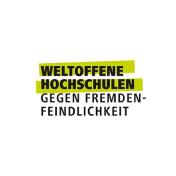As part of the InBiO project, an interdisciplinary team from the fields of chemistry, computer science, industrial design and textile technology worked on an innovative automotive interior with bio-based, interactive surfaces.
In terms of content, the objective gave rise to a series of tasks that can be broken down into different levels, which are briefly outlined here:
1. definition of a user type for which the innovative automotive interior is to be developed.
2. the development of an operating concept that ensures user-friendly operation. This against the background of increasingly complex technology in modern cars.
3. the selection of bio-based surfaces/materials as an alternative to the classic, usually petroleum-based materials. On the one hand, it is important to define materials that are bio-based and can fulfil the technological requirements. On the other hand, the interior should have a product personality that conveys the sustainable character of the bio-based surfaces but at the same time fulfils the expectations of the user type for an innovative interior.
4. development of textile-based switching and operating elements based on the bio-based materials
5. technical realisation of the design and operating concept with simultaneous integration into a CAN bus system.
6. creation of a demonstrator that makes the result of the development tangible and allows test person studies.
An overriding goal of the researchers carrying out the project was to consistently pursue an interdisciplinary approach. This means that all relevant disciplines must be involved in the project right from the planning stage of the research and development project.
As part of the interdisciplinary work, the project succeeded in designing an innovative car interior in line with the objective and partially realising it as a demonstrator. This interior is tailored to the persona of Christian Peter - a tech-savvy married family man in his 50s with a high income, for whom driving pleasure is important in his car. It was possible to realise an interior based on bio-based materials. Here, primarily textile substrates made of cotton and panelling elements on wood were used. The textile elements were integrated via appropriate functionalisation and construction and
used as control elements for a variety of relevant switching functions in the car. The interactive textile elements fulfil switching functions and are designed in such a way that visual feedback is possible at the same time. The operating concept is designed in such a way that a large number of functions can be clearly selected. In addition to the visual feedback that can be provided via the interactive textile components, the wood-based panelling elements are also partially translucent due to their special manufacturing method, so that feedback is also possible via these in combination with suitable (concealed) lighting elements or a specific lighting mood can be created. The entire demonstrator is designed in such a way that all the controls, including the gearstick, steering wheel and pedals, are integrated into a CAN-Bus4 system. The demonstrator not only serves to visualise the development and make operability and feedback tangible. Rather, the result is part of a driving simulator that should make it possible to test the innovative interior in the context of realistic driving experiences. In the future, suitable test subjects will be used to analyse how the developed interior is perceived by different types of users. This involves a series
questions relating to user-friendliness, aesthetics, recognisability and acceptance of a "green character" as well as functionality.
Internal project partners: Prof. Dr. Martin Luccarelli, Prof. Dr.-Ing. habil. Natividad Martínez Madrid, Prof. Dr. Torsten Textor, Dipl. Ing. Kai Nebel
Project duration: 01.05.2018 - 30.04.2020
Contact person
![[Translate to English:] [Translate to English:]](/fileadmin/_processed_/7/a/csm_Luccarelli_Martin_TEXOVERSUM_2024_7c3a6867fa.jpg)
Professorship Industrial and Material Design
Deputy Head of the Teaching and Research Centre for Interactive Materials (LFZ IMAT)
![[Translate to English:] [Translate to English:]](/fileadmin/_processed_/0/4/csm_Nebel_Kai_TEXOVERSUM_2024_6ed88851bf.png)
Head of Research Focus Sustainability & Recycling
Contact for internal and external inquiries on the topic of sustainability in the textile industry
![[Translate to English:] [Translate to English:]](/fileadmin/_processed_/b/8/csm_Textor_Torsten_TEXOVERSUM_2024_120eab59af.jpg)
Professorship Surface Modification & Finishing
Vice Dean Research
Head of the Teaching and Research Centre for Interactive Materials (IMAT)






